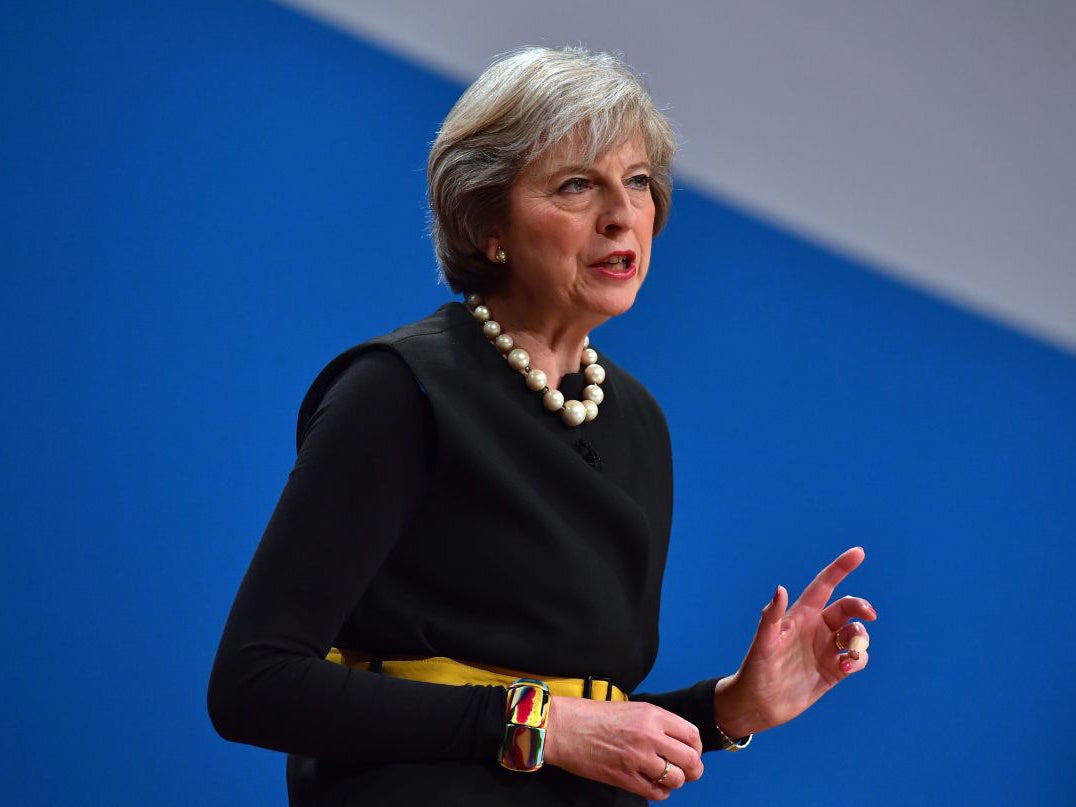Theresa May dismisses pound's 31-year low: 'Currencies go up and down'
Prime Minister also tried to leave the door open to staying in the Single Market

Theresa May has dismissed fears about the sharp slide in the value of the pound, arguing it is normal for currencies to “go up and down”.
Sterling fell to a 31-year low against the dollar today, a slump prompted by a growing belief that the Britain is heading for a “hard Brexit”, with the risk of economic damage.
Economists say the weakening pound will cut growth and push up the cost of living, because imports are more expensive, although it also makes exports more competitive.
But, asked if she was concerned, the Prime Minister told the BBC: “Currencies of course go up and down.
“If you stand back and look at the fundamentals of our economy, which are strong, if you look at the other economic data that has been around in recent weeks, if you look indeed at the most recent forecasts now coming out for growth in our economy this year, all of that is more positive than people had expected it to be and predicted it to be.”
Ms May gave the same relaxed response to Sky News, saying: “We see sterling moving in different ways at different times.”
The interviews came after the pound fell to $1.2737 at one point - its lowest level against the US dollar since 1985. Against the euro, the pound was down 0.2% at €1.1438.
Ms May also pointed out that the IMF had upgraded its forecast for UK growth this year and that the fallout from the Brexit vote had been “more orderly than people had expected”.
Speaking to the BBC, she added: “What the Government needs to do is to ensure that we are taking the right approach and that in terms of the process of Brexit, we are making that as smooth as possible.
“We have the Chancellor’s Autumn Statement in November, when he will be able to set out a trajectory for the Government’s response over the next year.”
In the Sky interview, Ms May also refused to concede that her determination to end freedom of movement for EU citizens means Britain will leave the Single Market.
She said: “I want the relationship that gives the best possible opportunity for our businesses to trade with and operate in the EU and for European businesses to trade with us and operate within the UK.”
“It’s not all going to be plain sailing. There will be some bumps in the road, but what I want to ensure is we get the right deal for the UK.”
The use of the phrase "in the EU" was interpreted as a refusal to accept that a Single Market exit – the normal definition of a “hard Brexit” – is inevitable if immigration is to be curbed, the Prime Minister’s stated first priority.
Ms May also spoke gloomily about the ongoing crisis in Syria, admitting a political solution was “at the moment impossible”.
She said: “I think it’s absolutely heartbreaking, some of the scenes that we are seeing taking place in Syria at the moment.
“The levels of violence we are seeing - the way in which the Syrian regime is indiscriminately bombing its own civilians and their policy of `starve or surrender’ - seems to make a political solution at the moment impossible.”
Join our commenting forum
Join thought-provoking conversations, follow other Independent readers and see their replies
Comments
Bookmark popover
Removed from bookmarks